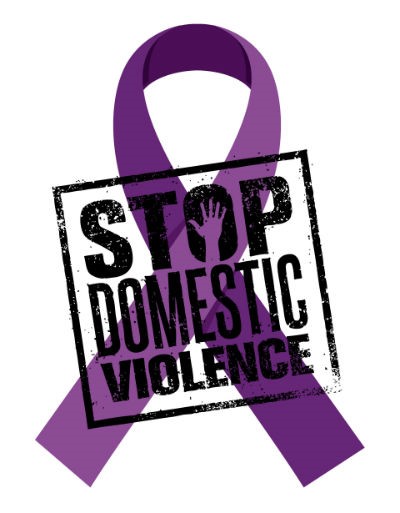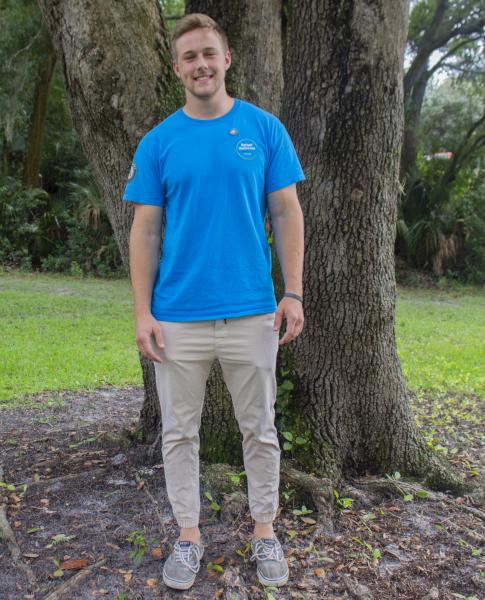Service Through Education and Engagement
 When you have never directly experienced something it can be easy to perceive it as rare, over-exaggerated, or perhaps inconsequential. This perception can be, in part, due to social stigma against discussing certain things—things like domestic violence and abuse. There is a good chance that those of us who have little exposure to the reality and ubiquity of domestic violence do not fully grasp how significant of an issue it is in the United States. From a numerical perspective, there are over 10 million cases of domestic violence every year—roughly 1/3 of women and 1/4 of men have engaged in an abusive relationship, and over 15% of domestic violence occurrences are at the hands of an intimate partner. Another common misconception eradicated by the aforementioned statistics is that only women are suffering domestic violence—men, too, suffer, yet the likelihood to discuss their experience or for their story to be granted credence is far less likely. Thus begets the cycle of silence regarding domestic violence for those enduring it. We must recognize that there is no specific “type of person” that experiences domestic violence—everyone is at risk. When we can recognize that domestic violence does not discriminate, we may realize that it is a deep-seeded cultural issue. Cultural issues tend to stem from misinformation and miseducation that birth stereotypes and stigmas.
When you have never directly experienced something it can be easy to perceive it as rare, over-exaggerated, or perhaps inconsequential. This perception can be, in part, due to social stigma against discussing certain things—things like domestic violence and abuse. There is a good chance that those of us who have little exposure to the reality and ubiquity of domestic violence do not fully grasp how significant of an issue it is in the United States. From a numerical perspective, there are over 10 million cases of domestic violence every year—roughly 1/3 of women and 1/4 of men have engaged in an abusive relationship, and over 15% of domestic violence occurrences are at the hands of an intimate partner. Another common misconception eradicated by the aforementioned statistics is that only women are suffering domestic violence—men, too, suffer, yet the likelihood to discuss their experience or for their story to be granted credence is far less likely. Thus begets the cycle of silence regarding domestic violence for those enduring it. We must recognize that there is no specific “type of person” that experiences domestic violence—everyone is at risk. When we can recognize that domestic violence does not discriminate, we may realize that it is a deep-seeded cultural issue. Cultural issues tend to stem from misinformation and miseducation that birth stereotypes and stigmas.
 Though there is no single answer to eradicating domestic violence, reducing the stigma against those who have suffered and are currently suffering is a step in the right direction. Stigmas and stereotypes are overcome through education and exposure. We must encourage, promote, and empower those who are fearful to advocate for themselves. Issues left undiscussed and swept under the rug tend to escalate rather than resolve. Instead of approaching this topic as something taboo, we must recognize the power of discussion as a conduit for change. Through open-mindedness, destigmatization, and genuine support, a culture that discusses and addresses this issue directly can be made possible. This cultural shift begins with intentional listening and an attempt to withhold reservations and judgment despite socially instilled prejudices.
Though there is no single answer to eradicating domestic violence, reducing the stigma against those who have suffered and are currently suffering is a step in the right direction. Stigmas and stereotypes are overcome through education and exposure. We must encourage, promote, and empower those who are fearful to advocate for themselves. Issues left undiscussed and swept under the rug tend to escalate rather than resolve. Instead of approaching this topic as something taboo, we must recognize the power of discussion as a conduit for change. Through open-mindedness, destigmatization, and genuine support, a culture that discusses and addresses this issue directly can be made possible. This cultural shift begins with intentional listening and an attempt to withhold reservations and judgment despite socially instilled prejudices.
Another great opportunity to battle stigmatization while supporting this population is through volunteering or service. In Jacksonville, we have locations like the Hubbard House, The Women’s Center of Jacksonville, or the Trinity Rescue Mission Women’s and Children’s Center, but there are opportunities for working with and service in this area in every city. Through service in locations like this, we can provide a supportive, safe environment for these individuals to be comfortable and feel welcomed.
In order to change the culture surrounding domestic violence in the effort of eliminating the issue entirely, we must listen and provide support to those willing to discuss their experiences, educate those whom promote stigmatization, and directly support and empower this population through engaging in local service opportunities.

This blog post was written by NHC FL member, Robert Janiczewski.
Rob serves at River Region Human Services as a Case Manager.